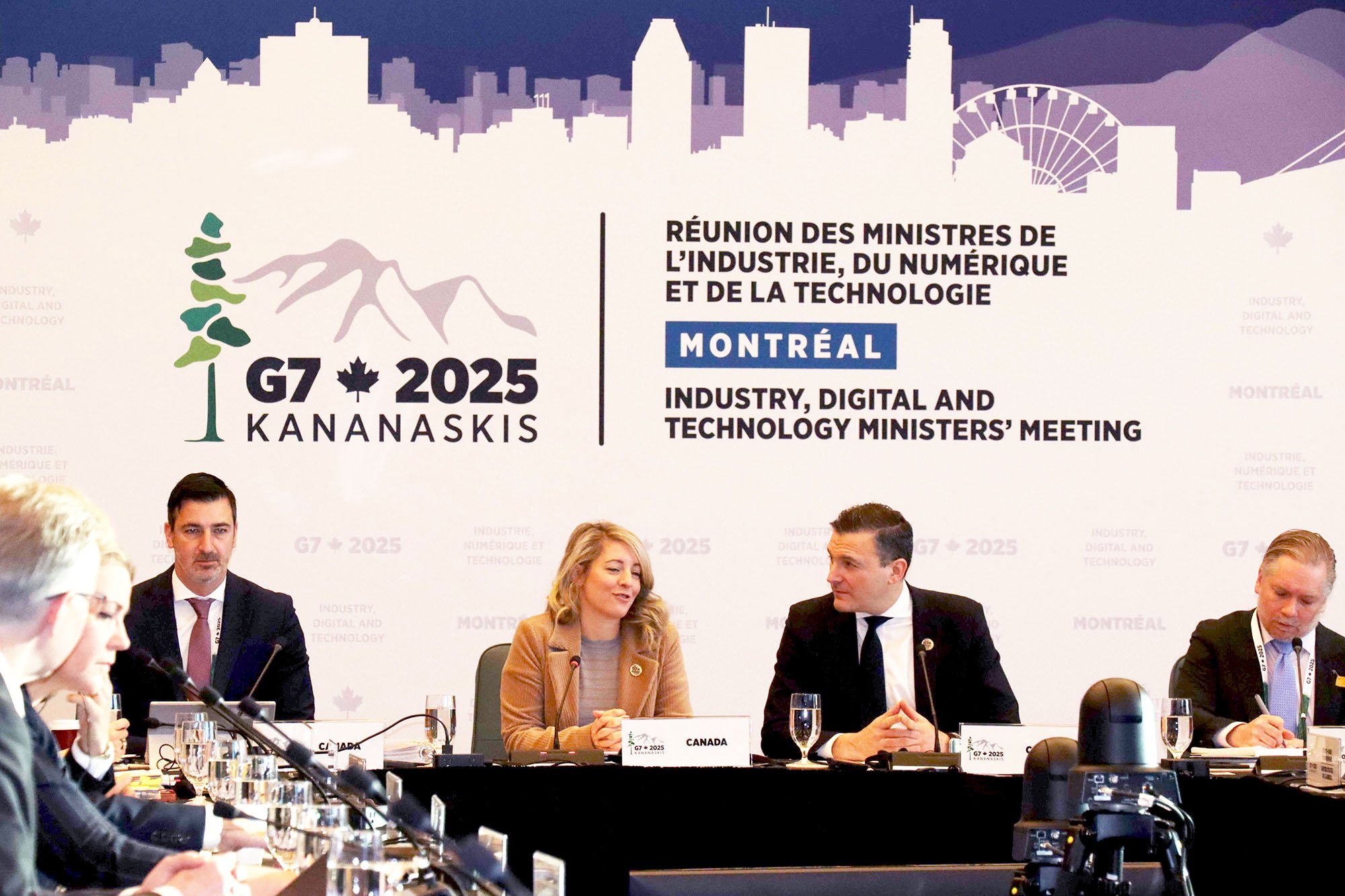Canada drops digital tax under U.S. pressure
Prime Minister Mark Carney and U.S. President Donald Trump met at the G7 Leaders’ Summit in Kananaskis, Alta. earlier this month. / GOVERNMENT OF CANADA PHOTO
Canada is rescinding its digital services tax and will restart trade negotiations with the United States, Finance Minister François-Philippe Champagne announced late Sunday.
The move follows a call between Prime Minister Mark Carney and U.S. President Donald Trump, just hours before the tax’s first payment targeting major tech companies like Amazon and Google was due.
"Today’s announcement will support a resumption of negotiations toward the July 21, 2025, timeline set out at this month’s G7 Leaders’ Summit in Kananaskis," Carney said in a written statement. He added that Canada’s approach “will always be guided by the overall contribution of any possible agreement to the best interests of Canadian workers and businesses.”
A spokesperson confirmed Carney’s call with Trump and noted that Champagne also spoke with U.S. Treasury Secretary Scott Bessent.
Trump had previously condemned the tax on Truth Social as a “direct and blatant attack” on the U.S., threatening to impose more tariffs and promising to announce penalties by July 4.
The reversal comes less than two weeks after a seemingly positive meeting between Carney and Trump at the G7, where they pledged to conclude trade talks within a month. Negotiations began in early May after Carney visited the White House following Canada’s federal election. Trump had already imposed steep tariffs on Canadian aluminum and steel, recently doubling them to 50%.
The digital services tax, passed in 2024, applied to large tech firms offering online marketplaces, advertising, or social media, and those profiting from user data. Though not U.S.-specific, most affected companies like Google, Meta and Amazon are American.
The Biden administration had strongly opposed the tax and launched dispute consultations under CUSMA, claiming it discriminated against U.S. companies.
Originally promised by the Liberals in 2019, the tax’s first payment was retroactive three years and expected to bring in nearly $2 billion. The Parliamentary Budget Officer had projected $7.2 billion in revenue over five years.
Daniel Béland, a politics professor at McGill University, told The Canadian Press the move a “clear victory” for Trump. “Prime Minister Carney acted now to appease President Trump and have him agree to simply resume these negotiations, which is a clear victory for both the White House and big tech,” Béland said. “President Trump forced PM Carney to do exactly what big tech wanted. U.S. tech executives will be very happy with this outcome.”






